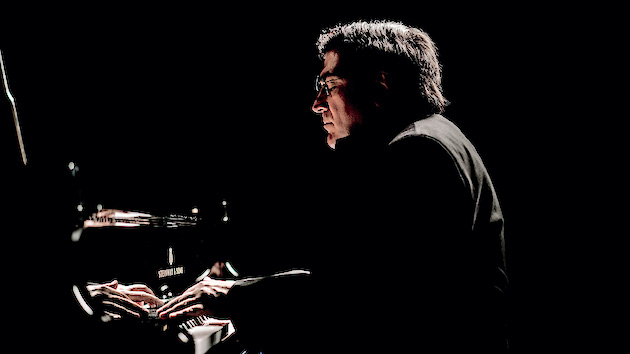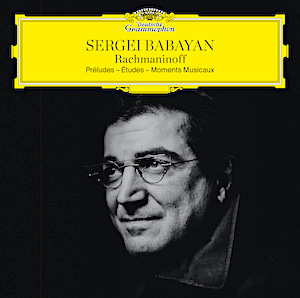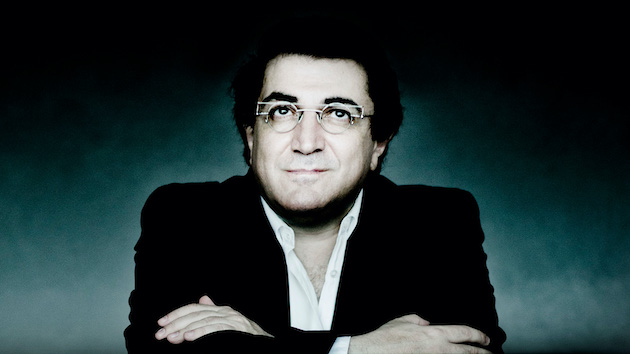
In the B minor Prélude Op. 32, No. 10, the longest piece on his new Deutsche Grammophon Rachmaninoff recording, pianist Sergei Babayan sends up a spray of notes as liquid, clear, and crystalline as a fountain’s tiny water droplets. He does it again in the shortest selection, the Morceau de fantasie in G minor that comes and goes in less than a minute.
The precision and fluidity affirm the artist’s affinity for Bach. That’s not to suggest there is anything Baroquely prim and proper about Babayan’s performance. From thundering chords to diaphanous rainbows, dynamic chiaroscuro to a lyrical singing tone, this Armenian-American pianist holds nothing back. At its best, the immersive approach can sweep a listener along. And then there are times when the waters feel so roiled that the waves threaten to swamp the music.
 Four Étude-tableaux showcase Babayan’s varied and mobile strengths. A propulsive ground bass drives the one in A minor toward an expansive middle section, enriched with chromatic inner voices. The agitation in the E-flat minor Étude balances its near chaotic momentum with a lucid separation of the right and left hand lines. In one of two C-minor forays, Babayan uses the sustaining pedal to bring a gratifying haze to the composition’s harmonic tides and seeping eddies. The other example in that key is colorful, almost operatic in its overt showmanship.
Four Étude-tableaux showcase Babayan’s varied and mobile strengths. A propulsive ground bass drives the one in A minor toward an expansive middle section, enriched with chromatic inner voices. The agitation in the E-flat minor Étude balances its near chaotic momentum with a lucid separation of the right and left hand lines. In one of two C-minor forays, Babayan uses the sustaining pedal to bring a gratifying haze to the composition’s harmonic tides and seeping eddies. The other example in that key is colorful, almost operatic in its overt showmanship.
Again and again, notes tumble out in dramatic cascades, tumbling over themselves in a rush to be heard. When it’s effective, in the short F-minor Prélude from Op. 32, Rachmaninoff’s flair for restless, forward movement gets its full measure. At other times, in the Moment musical represented here, the scales tip over into heavy-handed brawniness and loudness for loudness’ sake. It’s fitting that Babayan choose an arrangement of one Rachmaninoff Melody by Arcadi Volodos, another pianist who favors big impacts.
Babayan has, to be sure, a poetic side. A Prélude in B minor is as poignant and shapely as a well-wrought sonnet. Another in D major has the innocent freshness of something being made up on the spot, a pencil sketch that takes on depth and shading, at least until the cross-hatching gets a little dense near the end. Lilacs, a short, sweet song transcribed for solo piano by the composer, is as delicate and tender as its titular flowers.

Perhaps best known to concert audiences for his warhorse works for piano and orchestra (the second and third concertos and the Rhapsody on a Theme of Paganini), Rachmaninoff reveals more suppleness and nuance, musical range, and emotional insight in his solo piano works. His interpreters inspire in listeners a deep sense of loyalty for the drama and intimate, confiding qualities they discover.
While Ashkenazy happens to figure highly in this Rachmaninoffian’s estimation, Babayan makes a persuasive, if sometimes too insistent, a case here. No one’s got the final word on a composer with such a broad and absorbing musical vocabulary. Babayan speaks his in a clear, decisive voice.




